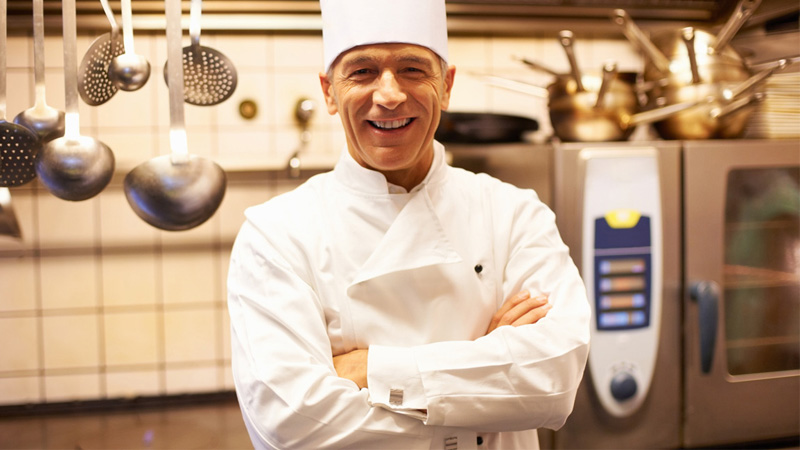
14 Dec2023
Head Chef: Job Description, Duties and Salary
If you fancy yourself as the next celebrity chef in the making, you’ll first need to climb the ladder in a professional kitchen. Formal qualifications aren’t necessary, but you’ll need plenty of drive, determination and passion to become King or Queen of the kitchen.
But what exactly is it the head chef does? Or more importantly, how much can you expect to earn if you become a head chef?
Job Description
The head chef is the highest-ranked ‘boss’ of the kitchen, answering only to the executive head chef. Inspiring individuals who take charge of large and small brigades, ensuring nothing substandard makes it to the dining room.
Barking orders is easy – leading by example is something else entirely. To succeed as a head chef, you need to become a role model for every cook, porter and pot-washer you oversee.
The role of the head chef isn’t typically as ‘hands-on’ as that of a sous chef or line cook. A head chef may take responsibility for plating and presentation at the pass, but will also oversee the most important administrative aspects of the business.
Examples of everyday responsibilities of the head chef include:
- Menu planning
- Determining the price of menu items
- Vetting and selecting suppliers
- Quality control of dishes and ingredients
- Cost-control and budgeting
- Dealing with escalated customer complaints
- Overseeing health and hygiene standards
- Staff scheduling and deployment
- Recruitment and training
- Addressing employee grievances and performance issues
The head chef also enjoys limitless freedom to express their creativity. Not to mention, experiment with weird and wonderful dishes that may or may not make it on to the menu. If food is your thing, a head chef position could be your dream job.
Lifestyle
Leading culinary figures often say that you can be a successful chef or enjoy a rich personal life. You’ll be expected to work shifts, which may include evenings, weekends, bank holidays and early mornings. Hospitality businesses in general tend to attract the majority of their guests outside office hours.
In addition, a hot and stuffy kitchen environment isn’t for anyone. Things get noisy, crowded and congested surprisingly quickly. Then there’s the constant pressure of being expected to deliver consistently flawless results, even when things go terribly wrong.
But hey, no one ever said it was going to be easy!
As for benefits, flexible working hours can also be a godsend. For some, the traditional 9-to-5 grind is the epitome of an uninspiring existence. In addition, a professional kitchen can also be one of the most enjoyable and energising working environments.
Not to mention, the perks and privileges that come with working at the top-level for a prestigious hospitality business.
Salary
By climbing the ladder to a head chef position, you’ll open the door to incredible career prospects worldwide. Salaries vary wildly from one establishment and location to the next, but are typically at the top end of the hospitality-earnings spectrum.
Starting out as a new head chef in a modest establishment, you’ll be looking at around £30,000 or so plus benefits. With more experience and in a more prestigious setting, you could easily take home £50,000 or more. It won’t be an easy journey, but the rewards make every step more than worthwhile!
Check out our exclusive catering and hospitality listings for the latest vacancies in your area!
READ MORE






